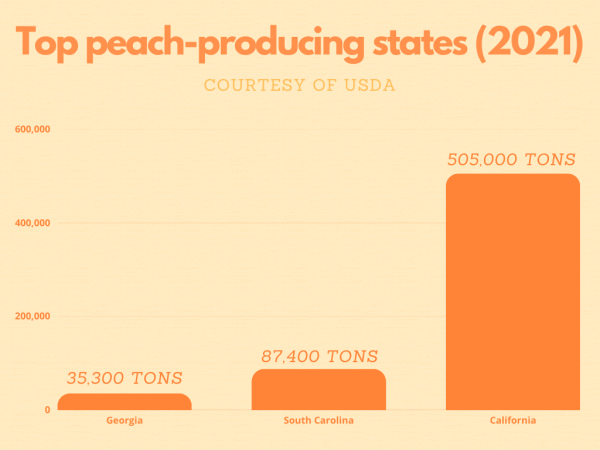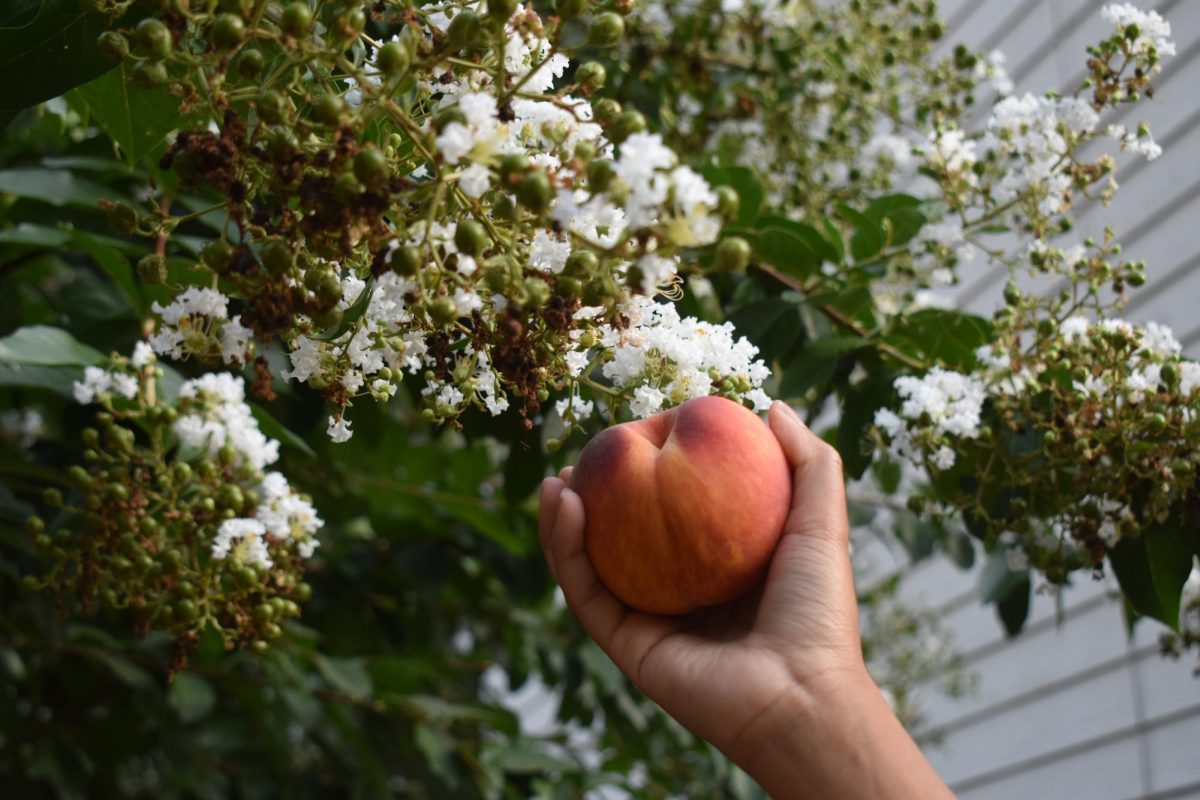Georgia, the state known for its juicy peaches, begins harvesting the succulent fruit to sell to the masses starting in early May. However, to the utmost surprise, the ever-changing weather patterns of the past year threw the usual production off track. With burning heat waves followed by glacial frosts, the once flourishing farms of the savory drupes turned to desolate trees, providing nothing but bare branches and green-turning leaves. After losing over 90% of the peach supply, local businesses reliant on Georgia peaches look elsewhere, such as peach hubs in California and South Carolina. While Georgia’s economy does not depend on peach sales, Georgia does rely on peach culture and history, hence the state’s nickname.
While this year’s crop took the cake as the most devastating peach decline in Georgia since 1955, a majority of the U.S. suffered from a continuous annual decrease in harvest. In 2022, only two states increased crop harvest, while every other state sustained losses. In response to this devastating decrease, the U.S. Department of Agriculture (USDA) declared 18 Georgia counties as natural disaster centers, helping extend emergency credit to mounds of farmers in the Peach State.
“We know in Georgia that winter is the season that’s warming the most quickly. It’s warming about twice as fast as any of the other seasons…it’s getting harder to get an adequate number of chill hours but I don’t think we’re going to lose peaches, at least not in the short term,” University of Georgia agricultural climatologist Pam Knox said.

Amidst the climate change panic, farmers across the country continue to suffer from irregular weather patterns, natural disasters and peaking heat waves. Last year in Florida, the sunny beach state lost 60% of its citrus crops due to Hurricane Ian‘s terrifying winds and rains. The home of green chile peppers, New Mexico, suffered extreme heat waves that reduced pepper growth and yield this summer. In almost every section of the country, unruly weather knocks farmers off their feet, resulting in ever-growing inflation rates and loss of fresh produce.
Rising prices may shun customers away—when farmers’ profits lower, the costs of the crops rise to compensate for the financial loss. Customers in Georgia should expect to now pay 56% more than last year for sickly-sweet peaches. Local businesses that pride themselves on buying Georgia crops for their dishes now find themselves in sticky situations as prices rise, moving to new markets to fulfill orders of fruit cobblers and peach pies. In July, canned fruits rose to over 8% while fresh fruits steadily increased to higher rates, mainly in the South.
“Extreme heat waves caused by the climate crisis have been detrimental to our crops, people and entire ecosystems. Joining environmental clubs or requiring a climate curriculum is important because education spreads awareness. People can’t fight for what they don’t know,” Eco Warriors president Summer Mathis said.
















